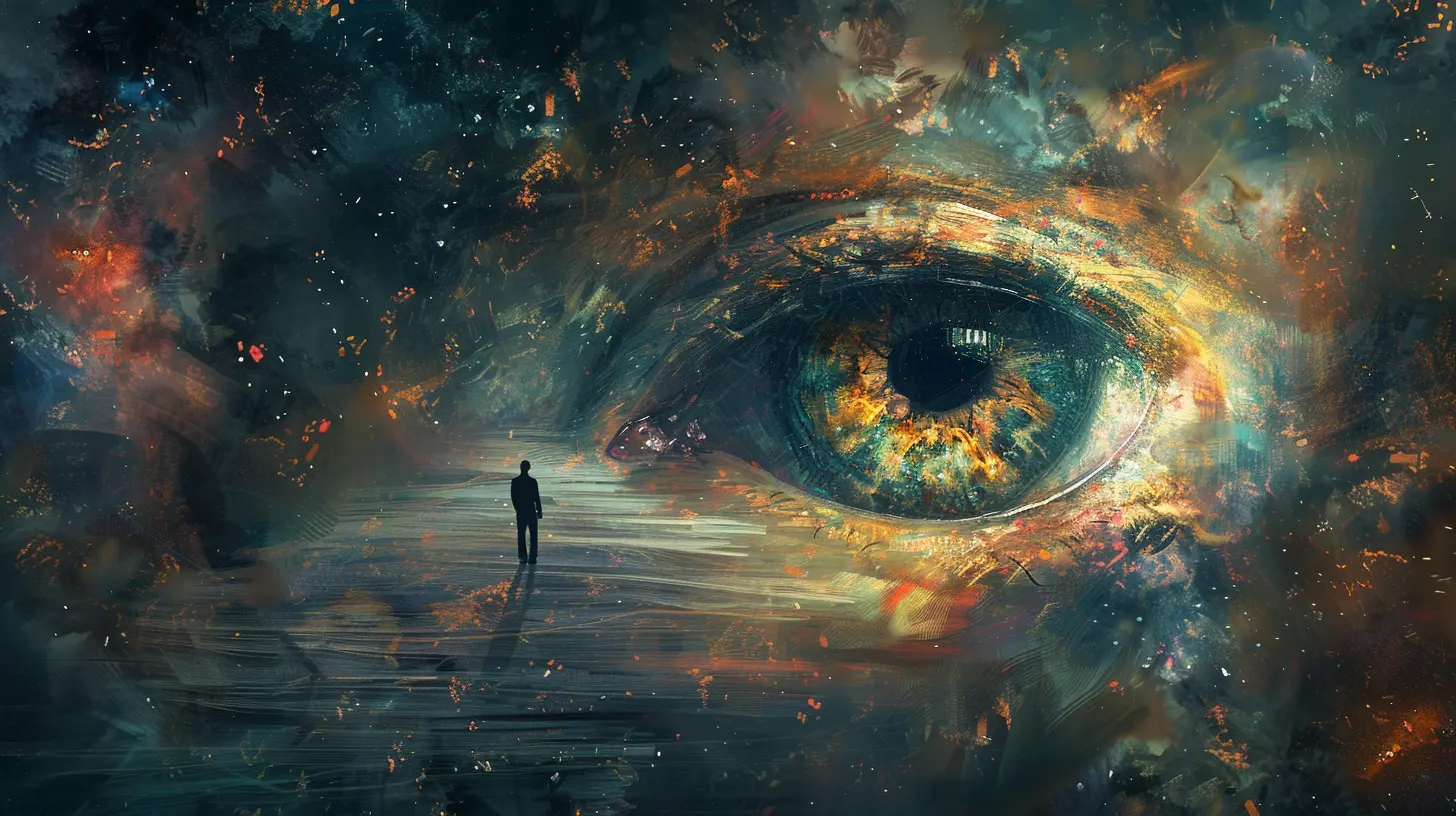The Role of Fantasy in Psychoanalytic Thought: Escaping Reality
4 April 2025
Ah, fantasy—our mind’s personal Netflix subscription, except it's free, never-ending, and customized just for us. Whether it’s daydreaming about quitting your job in the most dramatic way possible or imagining a world where your ex finally realizes they made the biggest mistake of their life (spoiler: they did), fantasy plays a crucial role in our psychological world.
In psychoanalytic thought, fantasy isn't just some guilty pleasure—it’s a fundamental mechanism of the human psyche. It’s our way of dealing with reality when reality is, well, disappointing. But is escaping reality always a bad thing? Or is it a necessary survival tool? Buckle up, because we’re about to take a deep dive into the wonderfully twisted world of fantasy, according to psychoanalysis.

Fantasy: A One-Way Ticket Out of Reality
Let's be real—life can be tough. Bills pile up, relationships get complicated, and that dream job you thought you’d have by now? Yeah, it’s mysteriously missing from your existence. Enter fantasy, the psychological equivalent of a secret passageway out of the mundane.Psychoanalysis, particularly Freudian theory, suggests that fantasy is not just some random mental detour—it’s a structured escape mechanism. It allows us to experience desires, express frustration, or even relive past traumas in a way that feels safer than facing them head-on. Freud himself believed that fantasy is deeply tied to our unconscious desires, often reflecting hidden wishes that we can't—or shouldn't—act on in real life.

Freud’s Take: Your Mind, the Ultimate Scriptwriter
Sigmund Freud, the godfather of overanalyzing everything, had a lot to say about fantasy. According to him, our minds are constantly writing scripts for an alternate reality where things work out in our favor. These fantasies serve a few critical psychological purposes:- Gratifying Unfulfilled Desires: Ever caught yourself imagining the perfect comeback you should've said in an argument three days ago? That’s your subconscious trying to give you closure—because reality was too slow to deliver.
- Defense Mechanism: Fantasy helps cushion the brutal blows of reality. Didn’t get that promotion? No problem—you’re now picturing yourself as the CEO of a rival company that crushes your current employer.
- Wish Fulfillment: Fantasy lets us live out the dreams that may never happen (like suddenly discovering you’re the long-lost heir to a billionaire fortune).
Freud argued that fantasy isn’t just for those who can’t "handle reality"—it’s an essential part of human thought. Even the most practical, grounded people indulge in it.

Jung and the Collective Fantasy
Meanwhile, Carl Jung took things to another level. He believed that fantasy isn’t just personal—it’s collective. His concept of the collective unconscious suggests that we all have universal symbols and archetypes floating around in our psyche, influencing our fantasies.Ever wonder why so many people fantasize about heroic journeys, mystical lands, or ancient prophecies? That’s Jung's idea of archetypal fantasies at work. They connect us to a bigger, shared human experience, making our personal escapism feel strangely... familiar.

Defense or Distraction? The Fine Line Between Healthy and Unhealthy Fantasy
Alright, so fantasy is great for our mental health. But here’s the kicker—it can also be a slippery slope. When does harmless daydreaming turn into full-blown avoidance?When Fantasy Helps
Not all escapes are bad. In fact, some are downright necessary. Fantasy can:- Boost creativity: Writers, artists, and filmmakers thrive on fantasy. Without it, we'd have no books, no movies, and definitely no Harry Potter.
- Manage stress: A little mental escape can help keep you sane, especially when real life gets too overwhelming.
- Aid problem-solving: Sometimes, imagining different scenarios helps us figure out real-life solutions.
When Fantasy Hurts
However, like anything enjoyable (chocolate, Netflix, sleeping in), too much fantasy can backfire.- Chronic escapism: If you’re constantly living inside your head and ignoring real-world responsibilities, we have a problem.
- Unrealistic expectations: Fantasizing about a perfect relationship can make real relationships seem disappointing in comparison.
- Detachment from reality: If you're more invested in your mental world than the actual world, your social life, work, and well-being will take a hit.
Fantasy vs. Reality: Do We Really Have to Choose?
Here’s the million-dollar question: Is fantasy a crutch, or is it an essential part of the human experience? The truth is—it’s both.Fantasy is like a spice in cooking—used in moderation, it enhances life; overused, it ruins the whole dish. The key is balance. It’s perfectly healthy to indulge in a little mental world-building—just make sure you’re not using it to completely avoid reality.
Instead of treating fantasy as an enemy, think of it as a tool. Use it to fuel your creativity, to momentarily escape, and to even reframe problems with new perspectives. But always make sure you’re still living in the real world, not just visiting it between daydreams.
Final Thoughts: Let’s Not Demonize Escapism
At the end of the day, we all need a break from reality—some more than others. Whether it’s imagining yourself delivering a TED Talk about a skill you don’t actually have (yet) or pretending your cat can understand every word you say, fantasy makes life bearable.So, don’t be too hard on yourself for taking an occasional mental vacation. After all, without fantasy, reality would be way too dull to handle.
all images in this post were generated using AI tools
Category:
PsychoanalysisAuthor:

Jenna Richardson
Discussion
rate this article
4 comments
Raegan Webster
This article offers an insightful perspective on how fantasy serves as a coping mechanism in psychoanalysis. Exploring its benefits can deepen our understanding of both mental health and creative expression. Great read!
May 15, 2025 at 2:46 PM

Jenna Richardson
Thank you for your thoughtful comment! I'm glad you found the article engaging and insightful.
Rocco Huffman
This article beautifully underscores the importance of fantasy in our psychological landscape. It reminds us that engaging with our inner worlds can be a powerful form of self-exploration and healing. Embracing fantasy not only enriches our understanding of ourselves, but also enables us to navigate reality with greater resilience and creativity.
April 30, 2025 at 3:35 PM

Jenna Richardson
Thank you for your thoughtful comment! I'm glad you found the article resonant and appreciate the vital role fantasy plays in our psychological journeys.
Cooper Davis
Fantasy serves as a vital bridge between our conscious and unconscious minds, allowing us to explore desires and fears. In psychoanalysis, it highlights the intricate dance of escapism and self-discovery, revealing both our vulnerabilities and aspirations.
April 14, 2025 at 3:11 PM

Jenna Richardson
Thank you for your insightful comment! I completely agree that fantasy plays a crucial role in connecting our conscious and unconscious, enabling deep exploration of our inner selves.
Jaxon Benson
This article beautifully highlights how fantasy serves as a vital escape in psychoanalysis, offering deep insights into our subconscious desires and coping mechanisms. Thank you!
April 9, 2025 at 2:48 AM

Jenna Richardson
Thank you for your thoughtful comment! I'm glad you found the article insightful in exploring the vital role of fantasy in understanding our subconscious.



